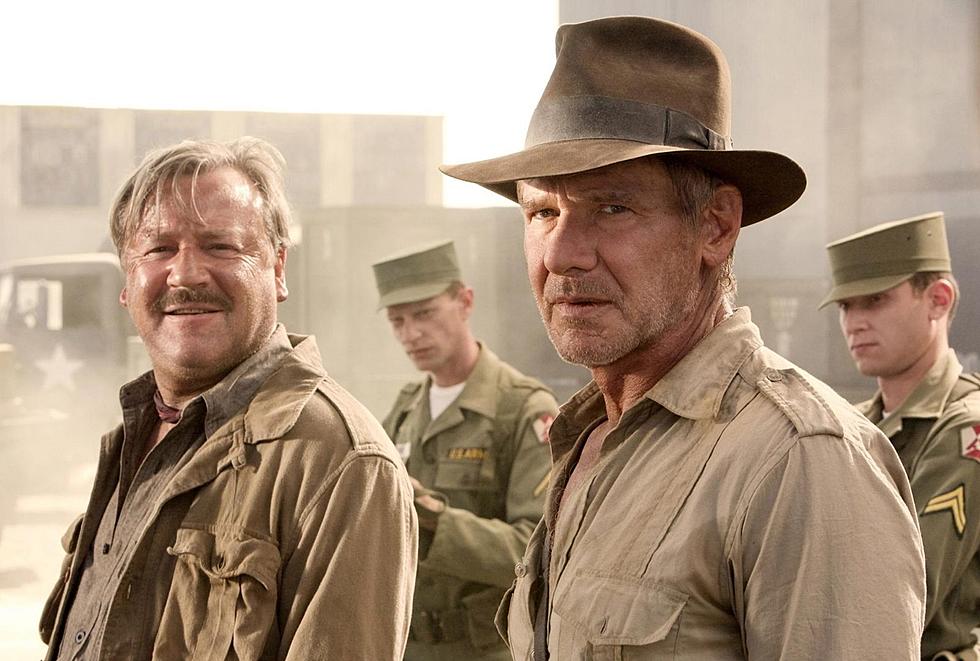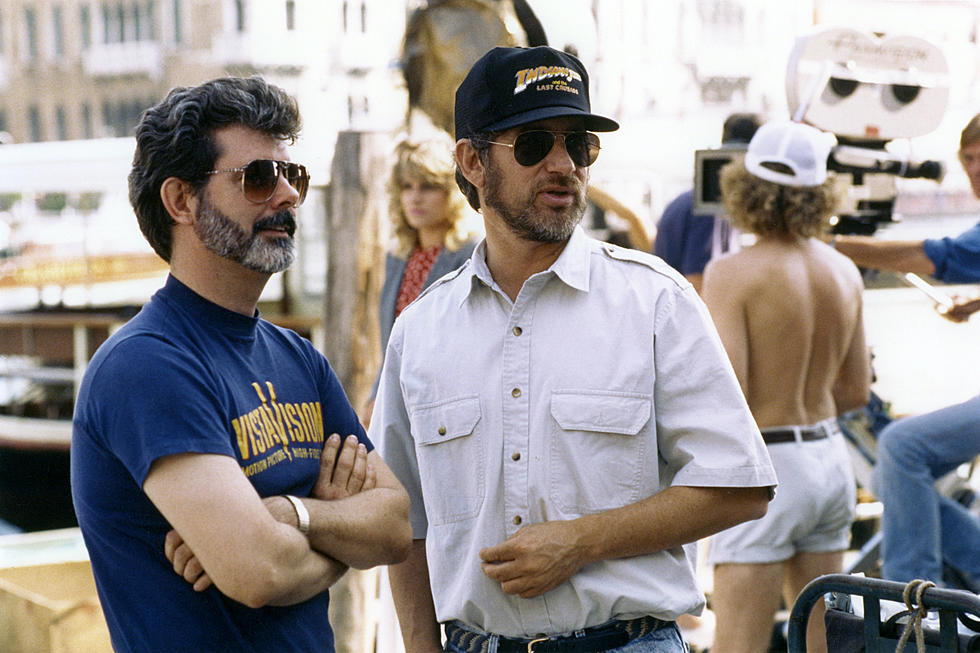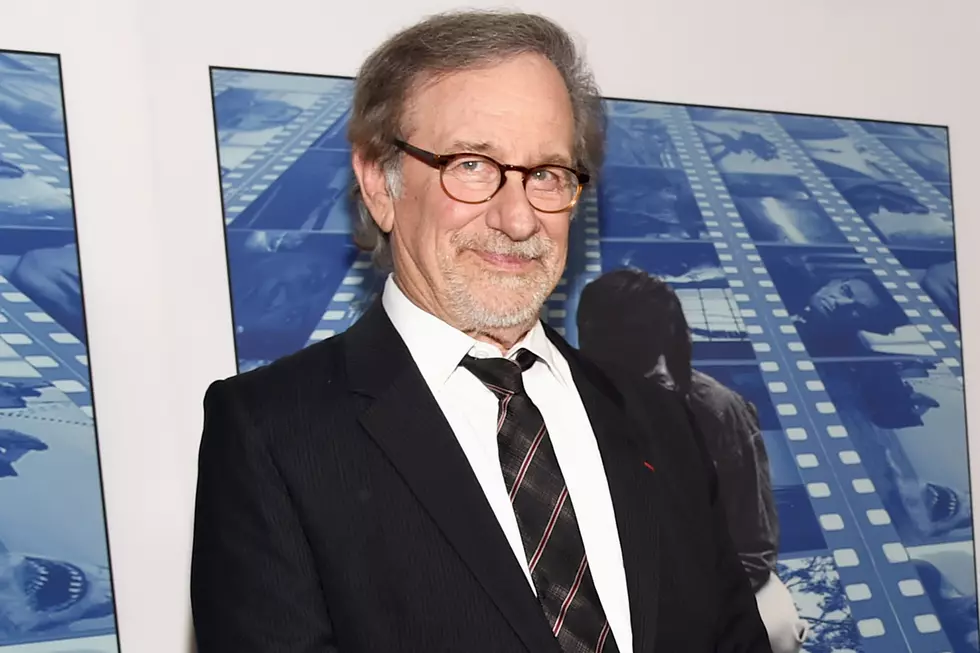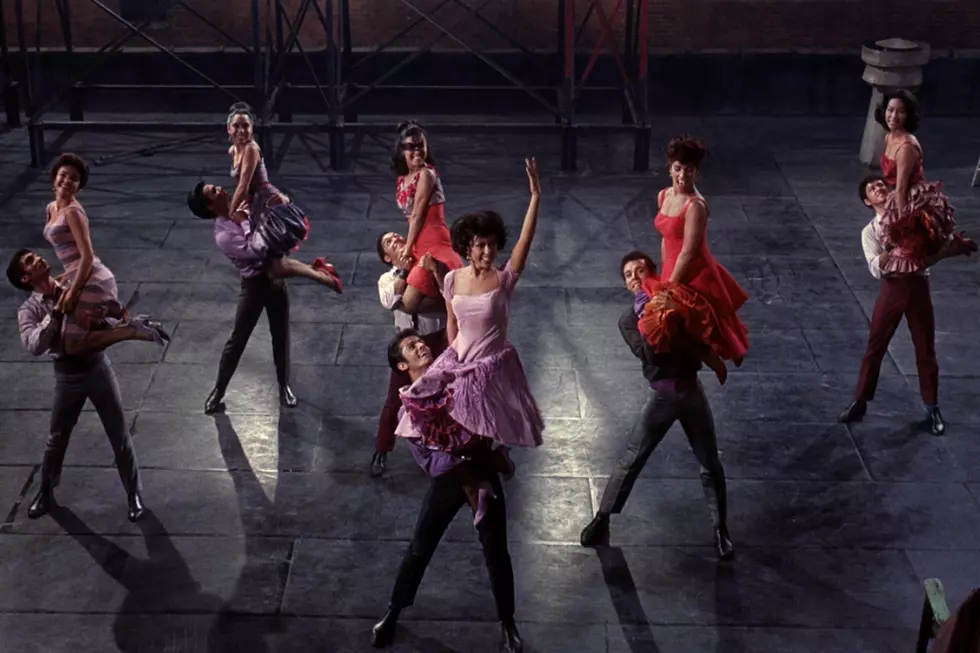
‘Jurassic World’ Review: The Park Is Open and Full of Dumb People
When all you care about is money, bad things happen.
That’s the message of Jurassic World, where greedy theme-park executives hoping to spike attendance engineer the “Indominus Rex,” a genetically-modified dinosaur that immediately turns on its creators and runs amok. Designed as a cautionary tale about the dangers of building a meaner, badder monster purely for the sake of profits, Jurassic World works equally well as a cautionary tale about doing the same thing in movies. All of the rationalizations provided by Jurassic World’s employees — “Consumers want them bigger, louder, more teeth.” “Somebody’s gotta make sure this company has a future!” — could have been taken directly out of the mouths of the studio executives who approved this gene splice of a reboot and a sequel. Their creation — the Indominus or the movie, there’s basically no difference — is as advertised; huge, mean, and visually striking. But this experiment is not without consequences.
Common sense and logic are amongst the first casualties even before Jurassic World goes to hell. As the film begins, the dino theme park has been functioning smoothly for several years; long enough, in fact, that attendance has begun to dip because the old attractions aren’t driving people wild anymore. “Let’s be honest,” says Claire Dearing (Bryce Dallas Howard), the workaholic manager of Jurassic World, “No one’s impressed by a dinosaur anymore.” In the theme park business, as in the movie business, the ante must constantly be upped; tourists (and filmgoers) always demand more bang for their buck. That’s why Simon Masrani (Irrfan Khan), CEO of Jurassic World’s parent company, orders his chief scientist Dr. Wu (BD Wong, the only returning Jurassic Park cast member) to create the Indominus, a brand-new attraction built in the lab from T. Rex DNA and a classified blend of other species.
The I. Rex’s rampage seems inevitable from the moment it’s introduced, but before it busts loose, the actual Jurassic World park looks incredible. An enormous amount of time and thought went into its design, from the function and aesthetic of the park’s attractions to the layout of its souvenir shops and restaurants. With one notable exception (to be discussed later), all of the rides look and feel like ones that would conceivably be found in a real dinosaur amusement park. When the place gets its big introduction in a soaring aerial shot backed by John Williams’ iconic Jurassic Park theme (as reorchestrated by new composer Michael Giacchino), it’s sequence guaranteed to raise goosebumps.
There's really just one problem: In a world where Jurassic Park and its sequels took place, who in their right mind would go to Jurassic World?
The movie never fully answers that question. The screenplay by Rick Jaffa, Amanda Silver, Derek Connolly, and director Colin Trevorrow leaves Jurassic World’s connection to the previous Jurassic Park mostly vague and confusing. It’s definitely a direct sequel to the first movie, which is referenced in numerous ways, but it conveniently never mentions The Lost World, probably because there is no way to reconcile the events of The Lost World (where a Jurassic Park dinosaur destroyed a big chunk of San Diego) with Jurassic World (where thousands of tourists travel to a remote island full of Jurassic Park dinosaurs blithely unaware of the inordinate danger at every waking moment). It’s also not clear, given the vast amount of resources and lives lost in the previous Jurassic Parks, why a company like InGen would try this doomed boondoggle yet again. Can you imagine the insurance premiums on this place?
Justifying the lunacy of rebuilding this death trap (and working around the likelihood that most people would do everything in their power to avoid visiting it) requires Trevorrow and his co-writers to populate Jurassic World with a roster of dumb and unappealing characters. The heroes and villains of Steven Spielberg’s Jurassic Park were intellectuals; scientists, mathematicians, academics, and hugely successful entrepreneurs. They were mostly smart people doing smart things. With the exception of Dr. Wu and maybe Chris Pratt’s raptor trainer Owen Grady, the protagonists in Jurassic World are all dummies doing dumb things that lead, directly and indirectly, to their deaths and the deaths of hundreds of other people.
Pratt’s character, the nominal hero of the film, wants to teach Jurassic World’s raptors to listen to his commands and work as a team. He’s made some progress getting them to listen to his orders, but they’re still an unruly mob of bloodthirsty predators. Naturally, Owen’s boss, Vic Hoskins (Vincent D’Onofrio), ignores the clear and present danger and pushes hard to get approval to use the raptors in battlefield situations. Think of all the human lives that could be saved with an army of raptor soldiers! If this sounds like a terrible idea, that’s only because it is maybe the worst idea in human history.
Or rather it was the worst idea in human history until Dr. Wu and his team decide to take a Tyrannosaurus Rex and essentially give it super-powers and turn it into the dinosaur equivalent of Jason Voorhees. This unmistakable Frankenstein doesn’t even make it to its grand opening before it outsmarts the security measures of its supposedly impregnable paddock and sets out across Jurassic World on a sort of serial killer murder spree. On the plus side, the I. Rex is probably very to cheap to feed, since she finds and kills all her own food.
In the midst of the ensuing chaos, Claire must team up with Owen (who she doesn’t particularly like) to find her nephews Gray (Ty Simpkins) and Zach (Nick Robinson). They were supposed to be visiting Jurassic World for some family time with their aunt, but Claire was too busy with work and so they wandered off to entertain themselves. They’re out enjoying a leisurely gyrosphere ride through a field of brontosauruses when the I-Rex goes berserk. Gray and Zach receive a warning instructing them to return with their vehicle, then choose to ignore it and go through a part of a fence that’s been ripped open by a dinosaur. (It was at this point that I started actively rooting for the Indominus Rex.)
Individual sequences work relatively well (particularly the pay off to Owen’s hours of raptor training), the park itself is impressively realized, and some of the effects are absolutely outstanding. But all of the human characters are so thinly developed and jaw-droppingly stupid (and often so directly responsible for their own potential deaths), that it’s hard to care about any of them.
Maybe it's time to admit Jurassic Park just isn’t cut out for sequels. It’s easy to buy someone trying to build this place once. But once you open Pandora’s box, it’s awfully tricky to stuff the genetically-mutated dinosaur back in. Jurassic World might have worked better as a strict reboot of the first movie; instead of scientists surveying the park while it’s still in development, they witness it falling apart after it opens. But Trevorrow doesn’t just want to recreate the wonder of Jurassic Park, he wants to actively engage with the nostalgia older viewers have for the original film with a variety of Easter eggs and callbacks.
His affection for the material comes through loud and clear, but so does his message about the perils of putting “wow factor” ahead of more human concerns. Jurassic World’s caretakers are so consumed with keeping their park relevant that they never stop to consider the larger ramifications of their work. They build the coolest-looking dinosaur the world’s ever seen, and it systematically ruins everything. In essence, the moral of Jurassic World is don't make Jurassic World. Obviously the filmmakers did not heed their own advice.
Additional Thoughts:
-The best performance in the film belongs to Jake Johnson, who works in the Jurassic World control room and provides some much-needed comic relief to scenes of raptor training and evil scientists acting evil. His big romantic moment with one of his co-workers (Lauren Lapkus, from Orange Is the New Black) is the one time Jurassic World plays things smarter than its audience.
-That gyrosphere is the one Jurassic World ride that absolutely doesn’t make any sense. What kind of amusement park gives riders 100 percent control over their ride, to go wherever and do whatever they want? When things go horribly wrong, Gray and Zach get a stern warning to return their gyrosphere, and that’s it. They ignore it and keep riding. With safety features like these, it’s hard to believe Jurassic World has been functioning successfully for years.
-Jurassic World has its own Jimmy Buffett’s Margaritaville. So you can eat a cheeseburger in paradise before you become one for a velociraptor.
More From 98.7 Jack FM










